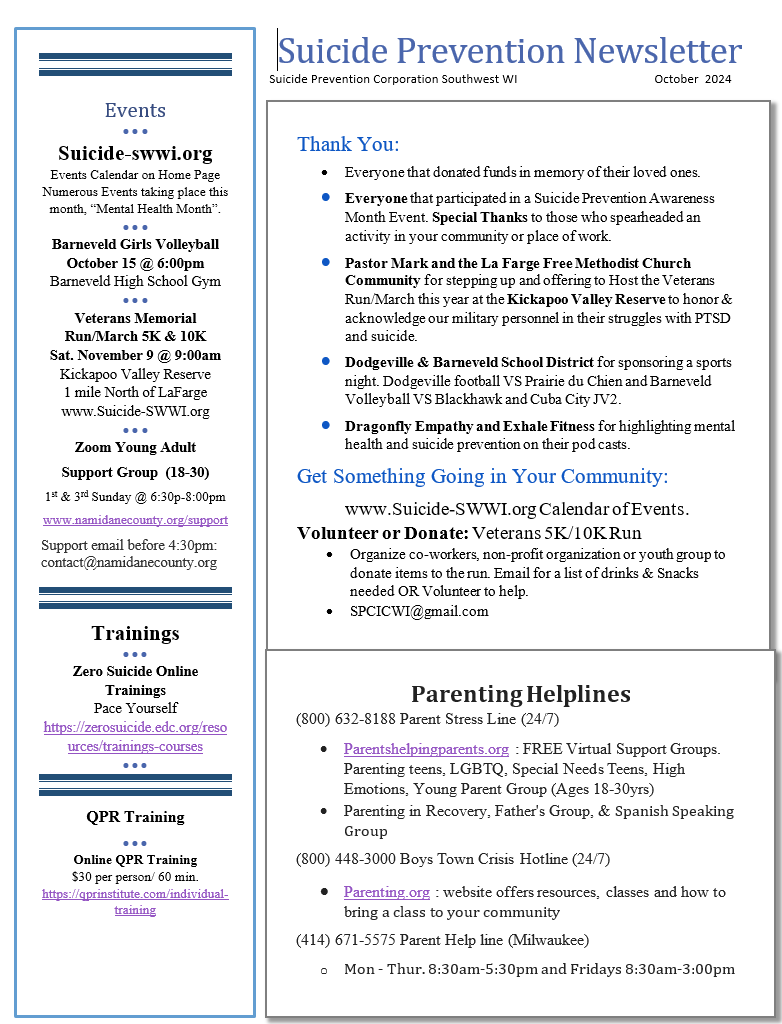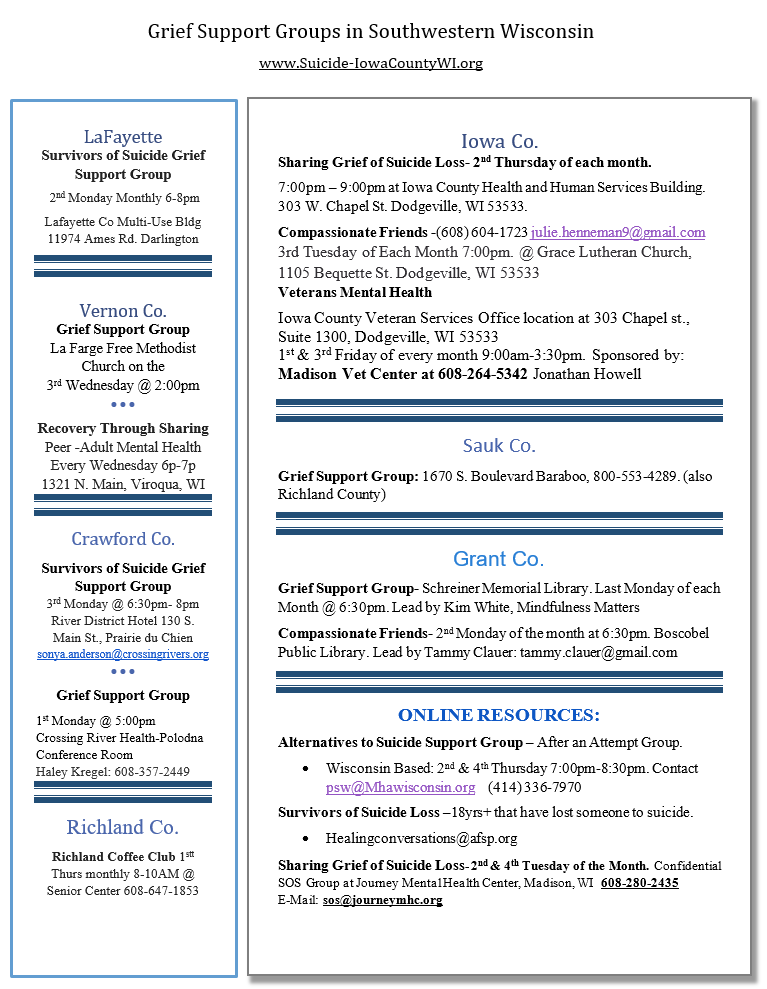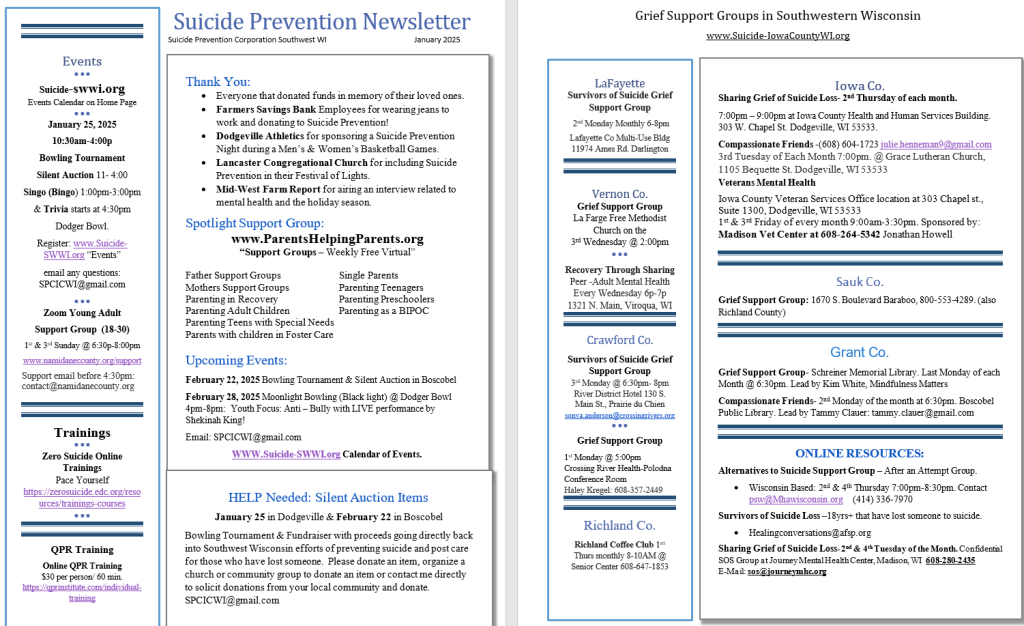


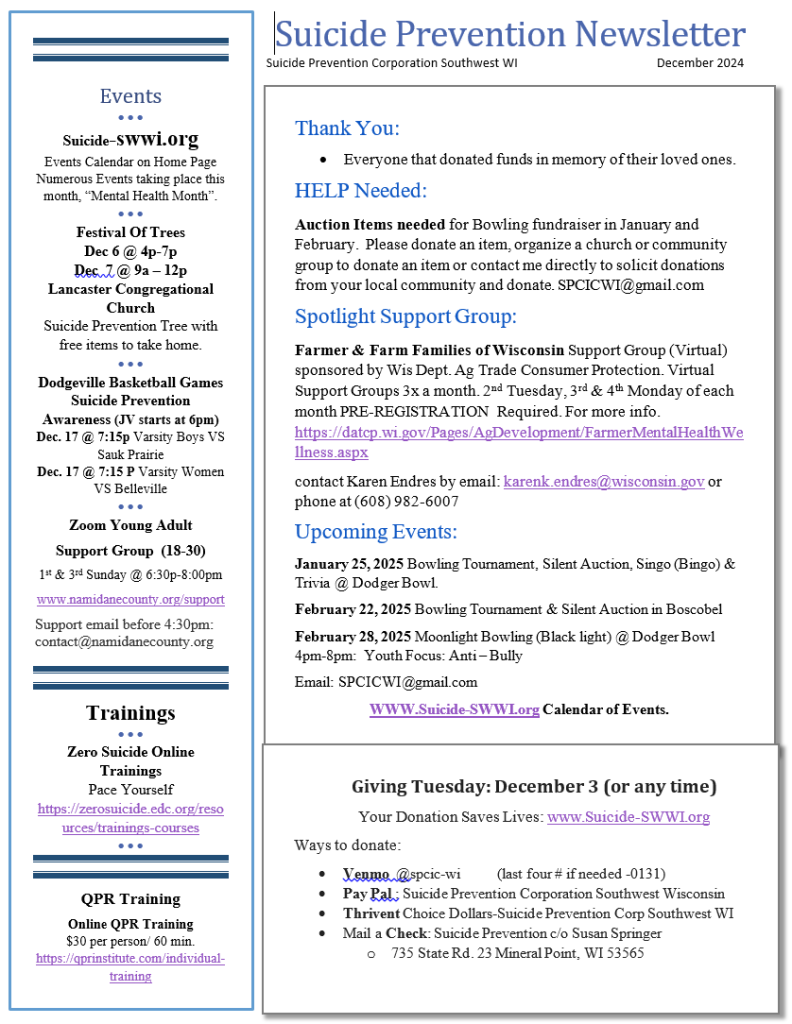
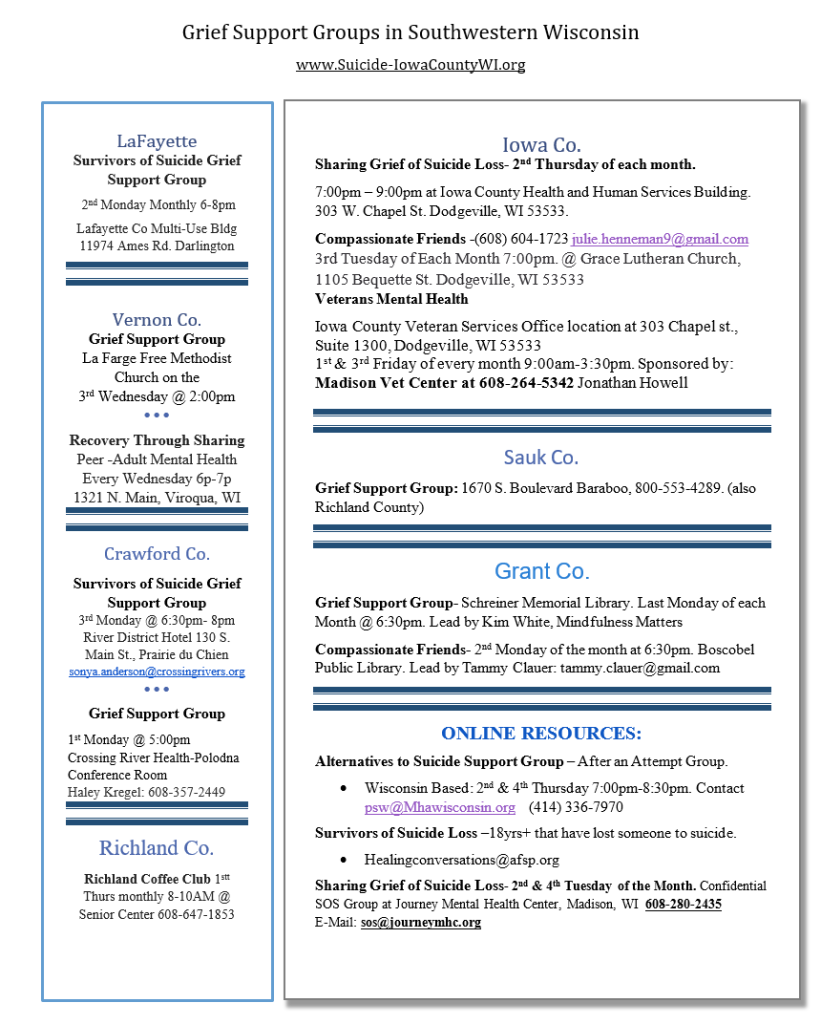
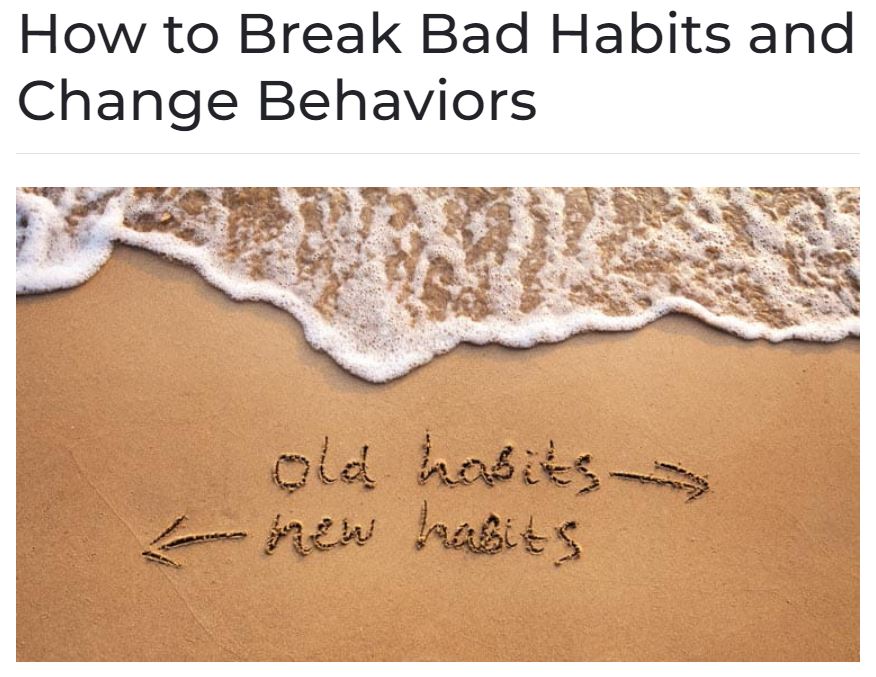
Old habits can be hard to break, and new habits hard to make. But with these six basic steps, you can develop new, healthy behaviors that stick.
How to Break Bad Habits and Change Behaviors | American Heart Association



This Veteran’s Day we are also honoring the spouses and families of Veterans. Veteran spouses and families often face unique challenges and sacrifices due to the nature of military life. Here are some of the most common sacrifices they experience:
Frequent Relocations
Military families move often, sometimes every few years. Constant moves mean spouses and children must frequently adapt to new schools, jobs, friends, and communities, which can disrupt social and educational stability.
Extended Periods of Separation
During deployments or training exercises, service members are often away for months or even years. Spouses must take on additional responsibilities at home, essentially serving as single parents and managing the household alone. This extended separation can strain relationships and be emotionally challenging for both the service member and family members left behind.
Career Sacrifices for Spouses
Due to frequent moves and the unpredictability of military life, many military spouses find it challenging to maintain stable careers. Gaps in employment and job market challenges can limit their professional growth and financial independence.
Emotional and Mental Health Struggles
Families of veterans, especially those who served in combat, may experience stress and worry about the safety and well-being of their loved ones. When veterans return, they may struggle with PTSD or other mental health challenges, which can impact family dynamics and place a strain on relationships.
Financial Uncertainty
Although the military provides certain benefits, some families face financial challenges, especially after leaving the service. Veterans might struggle to find stable employment or may need to rely on benefits that sometimes don’t fully meet their needs.
Challenges with Reintegration
When veterans return home, especially after long or multiple deployments, the transition to civilian or family life can be difficult. Adjusting to a more routine lifestyle, reconnecting with family, and addressing any physical or emotional scars can take time and patience from everyone involved.
Impact on Children
Children of veterans and active-duty members may experience emotional difficulties due to parental separation or the stress of frequent moves. They may also struggle to understand and cope with the challenges their parent faces, especially if that parent returns with visible or invisible wounds of war.
These sacrifices highlight the resilience and strength of military families, who play a critical role in supporting veterans and contributing to their overall well-being during and after service.
#veteranspouses#veteranfamily#VeteransDay#VeteranSupport#VeteransDay2024
As Veteran’s Day approaches, we wanted to share some supportive information for those who care about the wellness of our military members, our Veterans, former and current military spouses, and friends and families of those who volunteer to defend the United States. We’re honored to be a Veteran Ready organization that was recognized by Governor Evers for our onboarding program that supports and empowers those who sacrifice so much for us all.
Transitioning from military service to civilian life can be a challenging process that often brings about a variety of mental health issues. Some of the most common challenges include:
1. Adjustment Disorder: The shift from a highly structured military environment to the more flexible civilian world can lead to adjustment disorders, characterized by stress, anxiety, and depressive symptoms as individuals adapt to new roles and routines.
2. Post-Traumatic Stress Disorder (PTSD): Veterans may continue to struggle with PTSD from combat or other traumatic experiences during their service, affecting their ability to integrate into civilian life.
3. Depression: The loss of camaraderie, identity, and sense of purpose associated with military service can contribute to feelings of sadness, hopelessness, and depression.
4. Anxiety: Uncertainty about employment, financial stability, and fitting into civilian society can lead to heightened anxiety levels.
5. Substance Abuse: Some Veterans may turn to alcohol or drugs as a coping mechanism for dealing with stress, trauma, and the difficulties of reintegration.
6. Identity and Purpose Issues: The transition often involves a significant change in identity and a loss of the sense of purpose and belonging that military service provides, leading to existential questions and a struggle to find new meaning in civilian life.
7. Relationship Strain: Reintegration can put a strain on family relationships and friendships, as Veterans and their loved ones adjust to changes in roles and dynamics.
8. Occupational Challenges: Finding and adjusting to civilian employment can be difficult, leading to frustration, low self-esteem, and financial stress. Veterans may also struggle to translate their military skills and experience into civilian job qualifications.
9. Social Isolation: Veterans may feel isolated due to a perceived lack of understanding and support from the civilian community, leading to loneliness and social withdrawal.
10. Moral Injury: Experiences that conflict with one’s moral or ethical beliefs can result in moral injury, causing profound guilt, shame, and spiritual distress.
11. Crisis: The combination of these mental health challenges can lead to crisis, particularly if Veterans feel overwhelmed or lack adequate support.
12. Healthcare Navigation: Navigating the civilian healthcare system to access mental health services and benefits can be confusing and frustrating, further exacerbating stress and mental health issues.
Addressing these challenges often requires a comprehensive support system, including access to mental health services, peer support groups, employment assistance programs, and community resources specifically designed for veterans transitioning to civilian life.
#veterans#VeteransDay2024#VeteransDay#veteranready#veteransupport
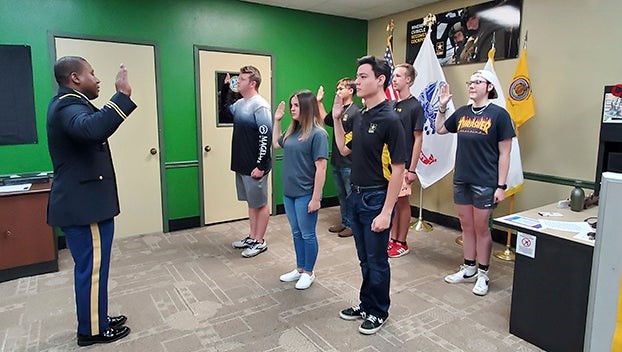

October is National Bullying Prevention Month and in this week’s episode of “Awkward Conversations,” an encore from Season 3, Jodie Sweetin of “Full House” and “Fuller House” and clinical psychologist Dr. Krystal Lewis are joined by anti-bullying advocate and author Jodee Blanco. Together, they dive into the emotional toll of bullying and how it can lead to substance use.

